In our rapidly changing digital environment, quantum computing has emerged as a potentially revolutionary force poised to transform online retail. This pioneering technology, which leverages the principles of quantum mechanics, promises to advance eCommerce to new heights of efficiency and customization.
As we near an inflection point in computing capabilities, integrating quantum processing with eCommerce platforms could yield transformative potential.
From hyper-personalized shopping experiences enabled by unparalleled data analytics to vastly accelerated transaction times, quantum computing may reshape how businesses function and how consumers interact in the digital marketplace.
This article explores the potential impacts of quantum computing on eCommerce, revealing a future where technology and commerce could converge to deliver shopping experiences surpassing today—not just speedier and secure transactions, but re-envisioned consumer experiences overall.
Understanding Quantum Computing
1. Definition and Basic Principles
Quantum computing utilizes the fundamentals of quantum mechanics to process information in ways that classical computers are incapable of.
Unlike traditional binary systems that store and process information using either 0 or 1 bits, quantum computers operate using quantum bits or qubits that can encompass multiple states simultaneously, meaning that a qubit can be both 0 and 1.
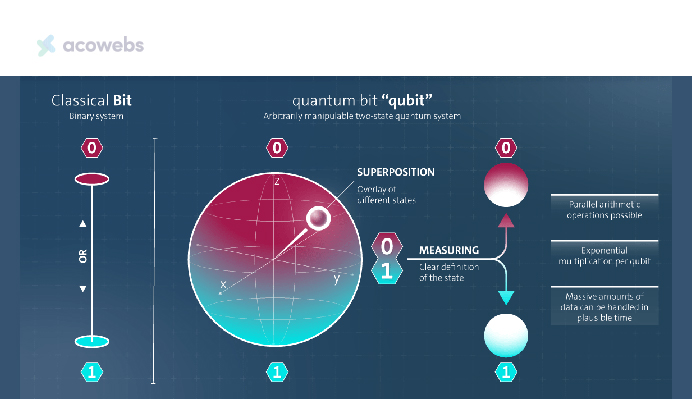
This distinguishing property allows quantum machines to perform certain complex calculations potentially exponentially faster than classical devices…but how?
At its foundation, quantum computing capitalizes on phenomena like superposition and entanglement. Superposition enables qubits to represent multiple values at once, while entanglement allows qubits to be interconnected in ways that amplify their processing power.
These defining characteristics underlie quantum computing’s perspective to radically transform various domains such as online commerce.
By leveraging the exponentially greater throughput of entangled and superposed qubits compared to classical bits, quantum systems may radically advance data-driven technologies.
2. Qubits and Their Power
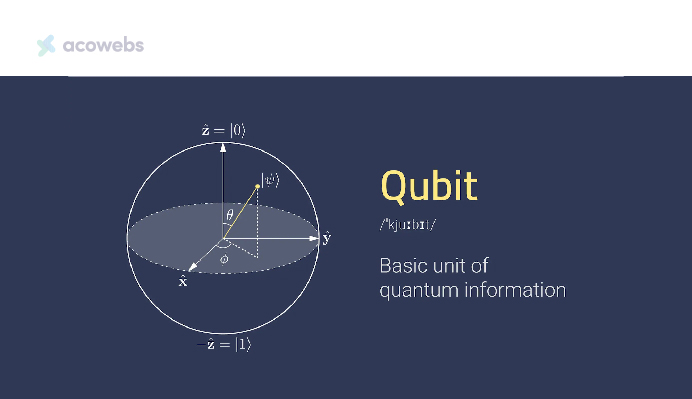
A qubit is a two-state (or two-level) quantum-mechanical system, one of the most basic arrangements of quantum mechanics. It represents the simplest manifestation of a quantum mechanical entity.
Examples that can be utilized to create qubits include the spin of an electron, with two potential states of up or down orientation, as well as the polarization of a single photon, with possibilities of being vertically or horizontally aligned.
In these physical examples, two separable conditions can be distinctly defined and the qubit may exist as a quantum superposition of both possibilities simultaneously.
The power of quantum computing lies in its qubits. While a classical bit can only be in one of two states (0 or 1), a qubit can exist in a superposition of both states simultaneously. This property allows quantum computers to process vast amounts of data and explore multiple solutions to complex problems in parallel.
To create a qubit, a physical system able to undergo quantum superposition between two definable configurations is necessary.
One approach involves using an atomic nucleus. The quantum property known as spin can represent the qubit states. Specifically, the spin of the nucleus, which describes its magnetic moment, can point either up or down relative to an applied magnetic field.
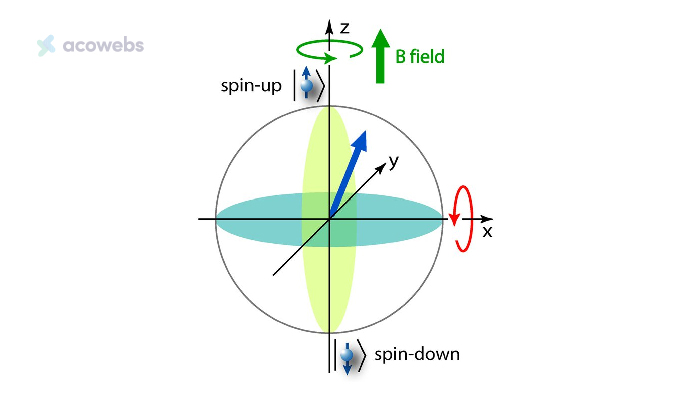
As the number of quantum bits or qubits within a system increases, the computational power expands exponentially.
For example, a device containing 300 qubits would hypothetically be capable of carrying out more simultaneous calculations than there are atoms present in the known, observable universe.
This immense processing potential introduces new opportunities for solving intricate optimization issues, boosting the scope and precision of data investigation, and improving machine learning algorithms – all of which have significant implications for eCommerce.
3. Current State of Quantum Computing Technology
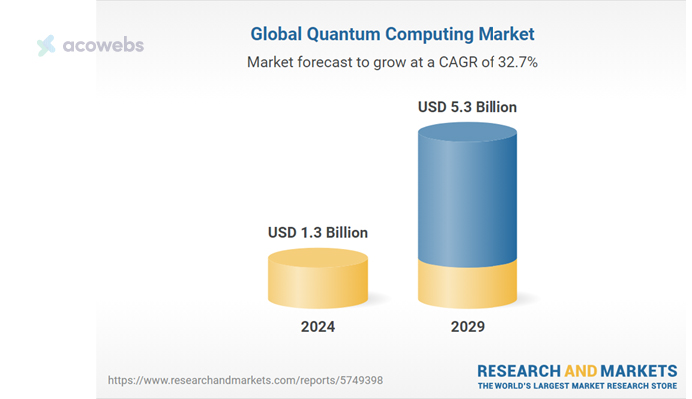
As of the year 2024, quantum computing is progressing quickly from a hypothetical idea to a practical reality.
According to research conducted by Research and Markets, the market for quantum computing is anticipated to increase substantially between 2024 and 2029, expected to grow from $1.3 billion to $5.3 billion over that period, representing a compound annual growth rate of 32.7%.
Major technology firms including IBM, Google, and Amazon as well as startup enterprises are making notable strides in developing more stable and powerful quantum computing systems. While the technology remains in its early phases, it is demonstrating promising outcomes across diverse applications such as finance, cryptography, and data investigation.
Within the realm of eCommerce, quantum computing is positioned to bring about transformative changes. Potential applications span from optimizing supply chain administration processes to boosting cybersecurity measures.
However, challenges still exist that must be addressed, especially regarding maintaining qubit stability over time and performing error correction techniques within quantum operations and computations.
As the technology matures, we can expect to see more practical applications emerging, potentially reshaping the future of eCommerce and its landscape in the coming years.
The Intersection of Quantum Computing and eCommerce

Quantum computing has the potential to significantly impact the future of eCommerce by enhancing key aspects of online retail operations.
One area that may be transformed is dynamic pricing. With powerful quantum algorithms, retailers could analyze customer and market data in near real-time to establish flexible, intelligent pricing models.
This tailored approach aims to optimize revenue while maintaining customer satisfaction.
Additionally, customer analytics could gain new depths. Quantum machines may process immense user datasets from varied platforms to deliver unprecedentedly precise customer profiling.
This enriched understanding would allow stores to offer hyper-personalized experiences through individualized recommendations and promotions.
Supply chain efficiency presents another opportunity for quantum advancements. Quantum solvers may calculate optimal logistical solutions, like optimized allocation of stock quantities across locations or intelligent multi-modal transportation routing.
Such improvements target lowering operating expenses while satisfying customer demand through just-in-time inventory replenishment.
By addressing these core areas, quantum technology has exciting potential to reshape online commerce in the coming years through boosted business intelligence and more agile operations.
Continued progress will determine how applications translate into tangible benefits for both retailers and consumers.
1. Improved Customer Behavior Prediction
The immense processing capabilities of quantum computers have great potential to transform how eCommerce companies predict customer purchasing behavior.
Quantum algorithms would be able to analyze enormous volumes of customer data much more quickly than conventional systems. This could allow subtle trends and relationships buried in the data to be uncovered.
Patterns noticed in a quantum computer’s analysis of customers’ browsing history, past purchases, and external influences like weather could offer incredibly accurate forecasts of future buying habits.
For example, a retailer may gain insight into how certain products such as clothing for summer or winter are favored during different seasons or events.

The depth of understanding quantum algorithms may provide about individual shoppers’ preferences could far surpass what is achievable now. eCommerce businesses using such predictive analytics could see major improvements to important metrics.
Conversion rates and customer retention may rise substantially as merchants acquire highly nuanced knowledge on how to best meet customers’ needs through tailored offerings and marketing.
2. Real-time Inventory Optimization
The capacity of quantum computers to conduct highly complex calculations instantly has great potential for improving inventory management techniques. A quantum system would be capable of continuously and dynamically evaluating a wealth of up-to-the-minute data sources to determine optimal stocking levels.
By analyzing real-time sales metrics, supply chain updates, and external factors, quantum algorithms could ensure retailers precisely maintain the right quantities of each product. This would minimize both overstocking of items sitting unsold in warehouses and stockouts that disappoint customers.
Unlike conventional computers, quantum systems can simultaneously factor myriad variables into their real-time inventory predictions.
For instance, it could account for seasonality trends, the impacts of current promotions, and even how social media discussions are influencing demand. This degree of nuanced, real-time optimization could significantly reduce costs from holding excess stock and lost sales from out-of-stock scenarios.
3. Personalized Shopping Experiences
A promising application of quantum computing’s immense data processing power involves delivering highly customized digital shopping experiences.
By analyzing each customer’s unique preferences and behaviors across enormous volumes of data in real-time, quantum systems could generate extremely tailored recommendations and content.
This degree of personalization goes beyond targeted product suggestions. For example, quantum algorithms may be capable of dynamically customizing entire user interfaces based on individuals.
Pricing could also potentially be personalized, adjusting in real-time based on a customer’s revealed preferences and purchasing patterns. Customer service could even be preemptively optimized through demand forecasting.
The end result would be a shopping experience feeling like it was designed specifically for each individual consumer. This hyper-personalization has a strong potential to boost customer engagement, satisfaction, and lifelong loyalty to merchants.
Whereas conventional computing imposes limits, quantum systems open new possibilities for insights gleaned from massive personalized analytics.
4. Optimizing Logistics and Delivery
Quantum computing shows strong potential to revolutionize how online retailers manage logistics and product delivery.
According to a 2021 consumer survey, speed and cost of delivery are major purchasing influencers, with over half of respondents citing delivery speed and nearly 40% emphasizing shipping charges. Only a small minority felt these factors did not impact buying decisions.

Quantum algorithms could optimize route planning to help companies address these key customer priorities.
By analyzing enormous quantities of dynamic data inputs simultaneously, such as current traffic, weather conditions, and up-to-the-minute warehouse inventory levels, quantum systems may determine the most efficient delivery routes.
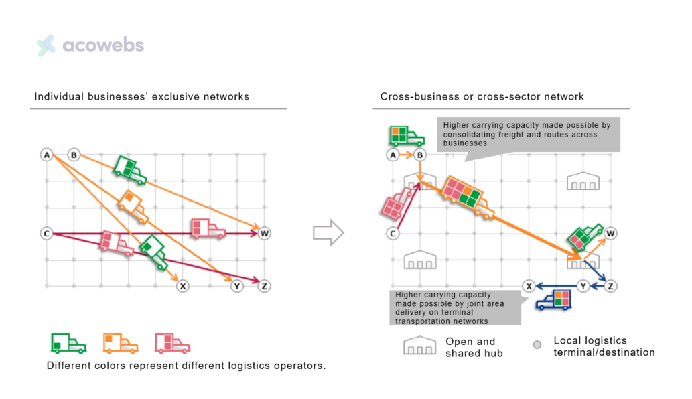
This could help reduce transit times as well as fuel usage and associated carbon emissions from fleets.
Conventional planning considers limited factors sequentially. In contrast, quantum computers’ extraordinary parallel processing power enables the evaluation of countless variables together, providing more sophisticated optimization.
The ability to constantly refine routing based on real-time inputs also promises logistic improvements over static traditional methods.
If able to leverage these route planning advantages, eCommerce businesses may gain competitive differentiation by offering faster, lower-cost deliveries.
Both the environment and customer satisfaction would benefit from the smarter dispatching quantum technology enables. While development continues, the potential shipping optimizations seem considerable.
5. Advanced Encryption and Security
A. Quantum-resistant Cryptography
As quantum computing capabilities progress, experts have raised valid concerns about impacts on modern encryption techniques.
It is believed that quantum computers may someday be able to crack all public key cryptography presently used to secure Internet and network communications. This includes transactions on digital commerce platforms.
In response to these warnings, extensive research has aimed to develop post-quantum cryptography techniques.
Often called quantum-resistant cryptography, this field focuses on creating advanced encryption algorithms resilient against hacking attempts using both classical computers as well as future quantum systems.
Leading technology companies like Intel are actively working on next-generation cryptographic solutions to defend against quantum computing threats and protect current cryptosystems from compromise.
In 2024, Apple also introduced a significant upgrade to their iMessage protocol called PQ3, establishing a new standard for quantum-secure messaging at scale.
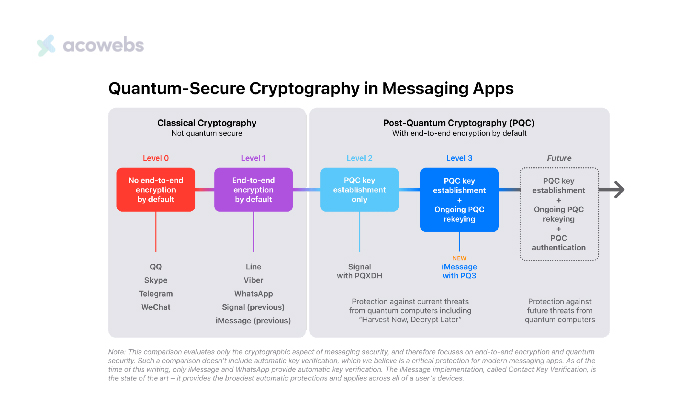
PQ3 (a post-quantum cryptographic protocol) employs cutting-edge post-quantum techniques to provide what Apple has deemed “Level 3” security, with comprehensive protection against even the most sophisticated quantum attacks.
This makes iMessage one of the most secure widely used messaging platforms to date. Developments like PQ3 show that post-quantum cryptography is progressing rapidly and will be crucial for maintaining security as quantum computing capabilities increase.
These new post-quantum security measures will be crucial enablers for maintaining integrity in online financial exchanges, sensitive data transfers, and all other digital interactions as quantum computing capabilities increase.
B. Protecting Customer Data
In the world of eCommerce, safeguarding sensitive consumer data is of critical importance. Personal details, financial information, and browsing habits necessitate robust protection. As quantum computing progresses, post-quantum cryptography will assume a vital role in shielding these kinds of sensitive customer records.
By implementing quantum-resistant encryption techniques, online retailers can help ensure customer data maintains impenetrable defenses even against the code-breaking capabilities quantum computers may someday attain.
Strong encryption helps eCommerce platforms comply with stringent privacy regulations while also retaining user trust.
Companies like QuSecure are presently offering post-quantum cryptography software solutions delivering control, insight, and adaptability to evolving threats. These tools will prove essential in the years ahead as businesses endeavor to keep customer information safely guarded under the developing quantum computing landscape.
While technology and regulations continue advancing, eCommerce relies on post-quantum measures to secure the future of eCommerce.
C. Secure Online Transactions
Ensuring the protection of digital financial exchanges will require a comprehensive overhaul as quantum computing capabilities advance. Some researchers have begun exploring how emerging technologies like quantum key distribution may help safeguard eCommerce transactions against quantum threats.
However, leading experts (such as Google CEO Sundar Pichai) have warned that quantum computers could potentially undermine all contemporary encryption within just a few years. Therefore, online retailers must proactively transition to quantum-resistant security measures to guarantee the continued safety of purchases.
Achieving quantum-secure commerce will demand substantial investment and cross-industry cooperation to research and adopt new cryptographic solutions. But this transition is crucial to preserving integrity and trust in digital marketplaces as quantum computers evolve.
eCommerce platforms aiming to thrive in the quantum era would be wise to make fortifying transactions against quantum decryption abilities a top priority now. While challenges remain, proactive securing of digital sales channels for future quantum realities seems a necessity to support ongoing commerce innovations.
Challenges and Opportunities
While the potential of quantum computing in eCommerce is immense, several challenges need to be addressed. One of the primary obstacles to overcoming decoherence is error correction, a phenomenon that can disrupt quantum calculations.
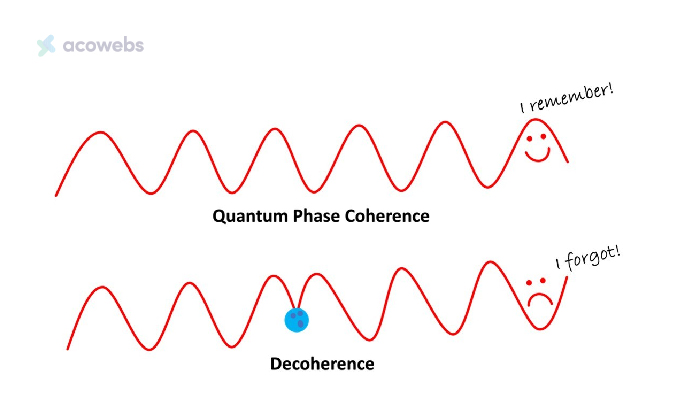
Scalability also remains a significant hurdle, as building more extensive and powerful quantum systems is crucial for practical applications in eCommerce.
Despite these challenges, the opportunities are compelling. Quantum computing offers the potential for secure computation and trusted data storage, which could revolutionize eCommerce security practices.
Additionally, the efficiency gains in areas like inventory management and fraud detection could lead to substantial cost savings and improved customer trust.
The Future and Timeline for Implementation
The timeline for widespread implementation of quantum computing in eCommerce is still evolving. However, industry specialists foresee noteworthy advances in the near term.
As previously mentioned, the quantum computing market is expected to grow at a CAGR of 32.7% between 2024 and 2029. During this period, numerous enterprises are anticipated to adopt hybrid methodologies, utilizing quantum techniques for certain optimization issues while maintaining classic computing techniques for separate tasks.
As of 2024, quantum computing is becoming increasingly business-ready, with companies advised to prepare for successful implementation.
While full-scale quantum computing may still be several years away, early-embracing organizations within the eCommerce segment could acquire an appreciable competitive benefit by incorporating quantum-inspired algorithms and hybrid solutions into their operations.
Conclusion
Quantum computing shows tremendous potential to transform eCommerce by enabling hyper-personalized shopping experiences, optimizing inventory and logistics in real-time, and securing sensitive customer data and online transactions against future decryption abilities.
While challenges regarding scalability and error correction remain, early adoption of quantum-inspired solutions could provide competitive advantages for forward-thinking companies.
As the technology continues advancing, quantum may come to permeate diverse eCommerce operations from highly granular customer analytics to dynamic pricing optimizations based on real-time market trends.
For businesses aiming to lead in the era of exponentially powerful computing, keeping abreast of developments at the intersection of quantum and online retail will likely prove indispensable. Investing in research now could help position early adopters to reap immense rewards down the road as quantum capabilities are further established.
Acowebs are the developers of the WooCommerce Product Labels which let customers include custom product labels or product badges for the WooCommerce products. WooCommerce sales badges plugin provides you with different label styles and customizations for labels. It offers a easy-to-use UI to add labels to the selected products or categories.












 Login
Login
 Cart
Cart







